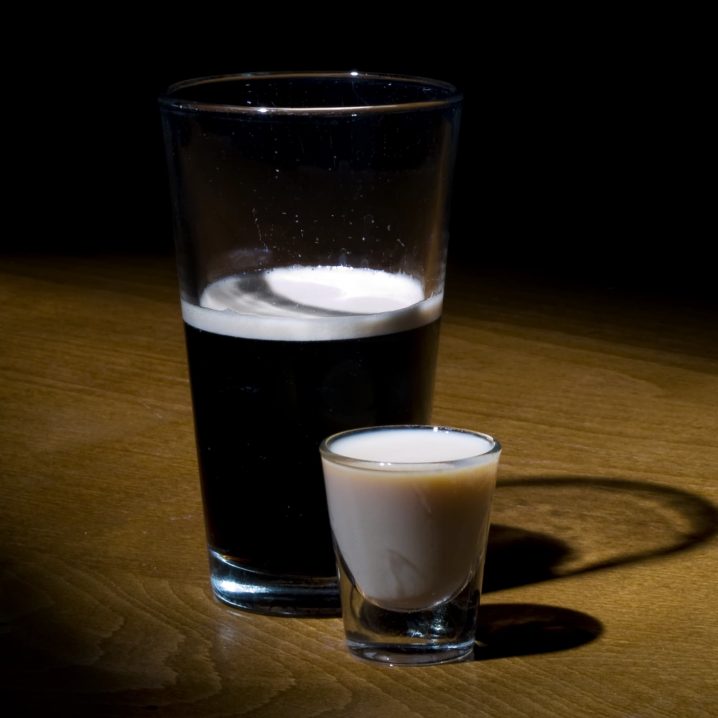
- POPSUGAR Australia
- Living
- PSA: Please Don't Order Irish Car Bombs on St. Patrick's Day (or Ever)
PSA: Please Don't Order Irish Car Bombs on St. Patrick's Day (or Ever)

In the United States, St. Patrick’s Day isn’t exactly the traditional religious observance it is in Ireland (although Ireland definitely knows how to party for it, too). Instead, it’s characterized by outrageous shamrock-inspired fashion, green beer, and lots and lots of day drinking. But while most St. Patrick’s Day celebrations are harmless, one of them sure isn’t: ordering Irish Car Bombs.
While the drink is pretty widespread in America, ordering one at any pub in Ireland is a sure-fire way to get yourself kicked out, yelled at, or both. The drink, which was created in 1979 by Connecticut bartender Charles Oat, gets its name from the somewhat explosive way you drop a shot of equal parts Baileys Irish Cream and Jameson Irish Whiskey into half a pint of Guinness. While the drink itself – which must be consumed before it curdles – is pretty tasty, the name is tied to a very sensitive and dark history.
Related: As Luck Would Have It, McDonald's Is Releasing a New Shamrock Oreo McFlurry
The real issue with the cocktail is that it likens the drink’s explosive nature to the infamous car bombs that were set off by the Irish Republican Army in Northern Ireland during a time known as the Troubles, which lasted from 1968 to 1998. On July 21, 1972, the IRA used more than 20 car bombs in a single day, now known as Bloody Friday, killing nine people and injuring 130 more. Because of this tragic history, many pubs in Northern Ireland and the Republic of Ireland refuse to serve the drink altogether, so don’t even bother asking.
The Irish Car Bomb brings up memories of violence and conflict for many and shouldn’t be ordered in Ireland or anywhere else. One way to put it into perspective is to imagine how Americans would feel to have a drink named after something like 9/11 – horrible, right? Although humor can be a coping mechanism for some, it’s important to consider the extent of the Troubles and the amount of people they affected, even if you aren’t Irish or don’t know someone who experienced them firsthand. If you make an honest effort to understand the story behind the drink, it should become clear that it’s not something to toast to. So order something else – there are plenty of other drink options out there.

